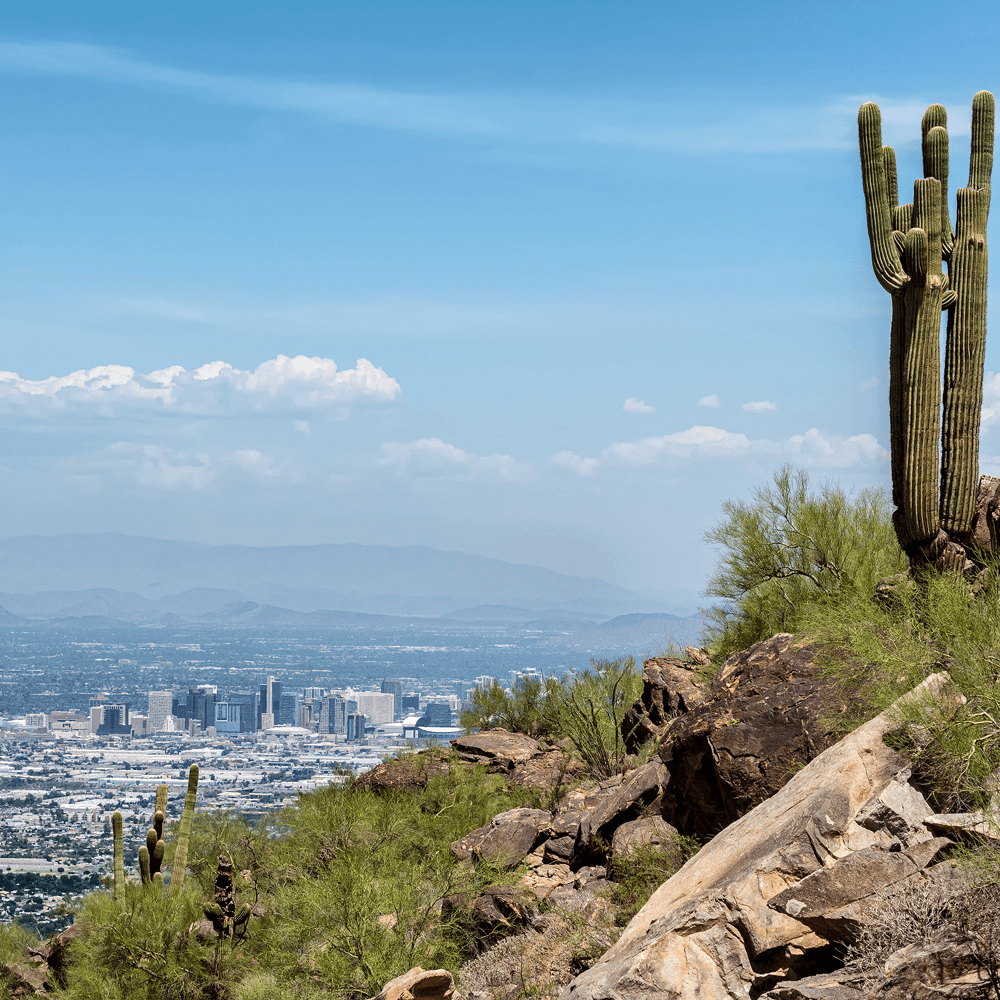AMWUA Blog
BY: Warren TenneyPlanning for the Long-Term, Eliminates the Need for Restrictions in the Short-Term

With the significant amount of conversation about drought and shortage in Arizona, many people wonder why we do not have any water restrictions imposed in our arid State. While many things contribute to that decision, the simplified answer is – because we do not need to.
Typically, restrictions on water use are put in place as a temporary solution or reaction to a short-term problem such as concern about meeting current demand. For example, in parts of the country with more plentiful water supplies, water providers often have to put restrictions in place during a particularly dry summer or some other emergency because their water supplies may be running low. Yet, here in the Valley, we have strategically planned for our unique circumstances.
Our starting point was recognizing that we know we live in an arid State, and water is precious. So the AMWUA members have planned, built, and managed their communities and their water supplies with drought and shortage in mind, ensuring adequate water to meet the needs of their residents and businesses. These preparations are ongoing, they are long-term, and will address short-term challenges.
We have also instilled a conservation ethic as we understand the importance of using water wisely here in the desert. So based on our planning and investment in water supplies and infrastructure along with our collective effort to conserve, we are not in a current situation that requires water restrictions, even with the Colorado River Basin and Arizona being in a historic drought.
Diverse water supplies
Here in the Valley, the water we utilize is not just from the Colorado River, representing only a portion of your city's water portfolio . The AMWUA member cities also receive water from the Salt and Verde Rivers and utilize reclaimed water and a small percentage of groundwater. By having multiple sources of supply, the cities are better prepared for the long-term and any short-term challenges that may arise and enabling the cities to offset reductions in one or more supplies.
Infrastructure
Knowing that precipitation in the West is never a certainty, we have reservoirs on the Colorado River and the Salt and Verde Rivers to capture vast amounts of water during wet periods for times when there is less precipitation. This means our water supply systems are built to manage extended periods of limited precipitation. Our cities have invested billions into infrastructure to utilize those supplies, which is vital to making our daily lives function smoothly. Of all infrastructure types, water systems are the most fundamental to life by providing safe and clean water to households, industries, and businesses. That is why infrastructure is a continual priority for the AMWUA cities and all water providers. This includes making the financial commitment to invest in the maintenance, replacement, and expansion of their water infrastructure.
Recycling
Water recycling, also known as water reclamation or water reuse , centers on treating wastewater, and it has become an integral part of the cities' water portfolios. The AMWUA cities reclaim all of their wastewater, putting nearly 100 percent to beneficial reuse, including energy production, irrigation, and underground storage for use in times of shortage and offsetting the demand for surface supplies.
Underground storage
Many things must be considered when it comes to long-term planning for water supplies in the desert. One critical component is storing water underground , which is a valuable investment in a sustainable water supply. Over the past two decades or so, the AMWUA cities have collectively invested hundreds of millions of dollars in storing a significant amount of water underground. Having this additional water source means the AMWUA municipalities have greater flexibility in managing their water systems and delivering water to you.
Conservation and efficiency
Large water providers in the State's most populated areas have been required to meet mandatory conservation requirements for more than 30 years, reducing per capita demand and stretching supplies. The AMWUA cities have led the effort, collectively implementing more than 300 conservation and water use efficiency practices. Water conservation and efficiency have played a part in protecting all water sources here in Arizona - not just in response to a possible shortage of one source of supply. Meaning we all benefit because leaders made tough decisions early on by instilling a conservation ethic and recognizing the importance of water conservation practices.
Drought preparedness plans
All Arizona water providers are required to adopt tiered drought preparedness plans. These plans are designed to incrementally reduce demands during drought, particularly when needed to ensure there is water to meet residents' needs and support the economy. Some cities may activate their plans in the nearer term, while some may not need to launch them for years. This depends on each municipality's determination of how circumstances affect their unique water supply portfolios.
Therefore we currently do not need to impose water use restrictions because Valley cities have diligently prepared for today and continue to prepare for drought and shortage. As our history has proven, today's actions can avert tomorrow's crisis. The Valley cities will continue to take proactive measures to prevent potential future impacts of sustained drought, increasing temperatures, and potential shortages in surface water supplies.
For over 50 years, Arizona Municipal Water Users Association has worked to protect our member cities' ability to provide assured, safe, and sustainable water supplies to their communities. For more water information, visit www.amwua.org
Stay up to date & sign up for the AMWUA Blog:
Sign Up Now For Email Newsletters you can trust.
